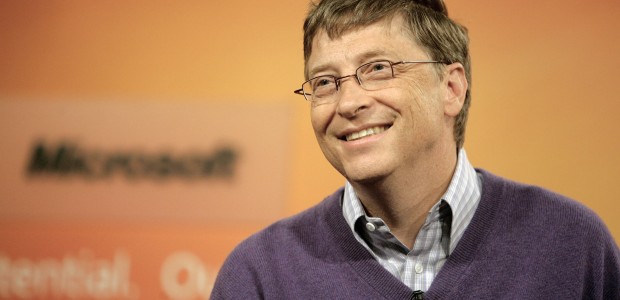In a press release this week, Bill Gates announced that he was investing in Foundation Medicine with some choice words:
“Advances in understanding the human genome are having a dramatic impact on almost every area of medicine. Foundation Medicine’s approach in harnessing the power of genomic data to improve care for cancer patients could represent an extremely important step forward in improving routine cancer care. I’m happy to be supporting this quite promising approach.”
Foundation Medicine is a cancer research and diagnostics company based out of Cambridge, Massachusetts. They sell a diagnostic test that is worth $5,800 which uses DNA sequencing to help doctors determine which cancer drugs would be most effective against an individual patient’s tumor.
Now, with the backing of the second richest man on Earth, what doors will be open to them?
Strong Investments in Foundation Medicine
With the help of other investors like Google Ventures and Kleiner Perkins Caulfield & Byers, Foundation Medicine was able to raise another $13.5 million in their series B round (this is the one in which Bill Gates also got involved) bringing their total up to an impressive $56 million from investors.
Other notable investors included Evan Jones, the legend in the diagnostics industry responsible for founding DiGene (Jones has also been selected to join the board at Foundation Medicine), and the Facebook billionaire, Yuri Milner.
After its founding in April 2010 by Third Rock Ventures, Foundation Medicine became one of the first companies to profit from the rapid expansion in DNA sequencing technology that was taking place. In fact, DNA sequencing technology has become more powerful and cheaper at a rate that actually exceeds the well-established Moore’s Law (this law has been used to govern the rate at which computer power and microchips have increased).
Currently, you can obtain a reasonably accurate readout of the 6 billion letters that comprise the DNA code of any one person for as little as $1,000.
Focus on Specific Gene Mutations vs. Entire DNA Sequence
In cancer-based research, the current approach is to focus on the specific gene mutations within the tumor, instead of looking to sequence the entirety of the patient’s DNA or even that of their tumor. Studies have shown that these genetic mutations can provide valuable clues as to which medicines will work best. Major cancer treatment centers have adopted this cutting-edge approach, and they have been using it for certain cases where their doctors are uncertain as to which course of treatment to take.
However, Foundation Medicine would like to make this technology available to an even larger audience. In order to achieve their dream, they have made use of the DNA sequencing machines that are produced by companies like Illumina.
According to the Foundation’s chief executive, Michael Pellini, they want to make this form of diagnostic testing more available at the community practice level, so that more patients could have access to it from where they live. With the evidence that backs up the validity of these tests, this could be a major benefit to so many people. In fact, the Dana-Farber Cancer Institute has concluded that more than half of the patients who develop colon and lung cancer could benefit from having access to this test.
The Shifting Scope of Bill Gates
Okay, so where does Bill Gates come in? Well, as you can imagine, it is really difficult to analyze DNA data. The Foundation’s test is not actually showing a full genome, it is only .02% of the entire genome.
To put it simply, many of the issues with using these genetic information readouts comes from having to solve computational and analytical conundrums, something that Mr. Gates happens to be pretty good at. In fact, despite being one of the richest men in the world for more than two decades, he has consistently stayed on top in his field of expertise.
For some time now, Bill Gates has held a strong interest in biotechnology. BusinessWeek listed biotech as Gates’ other great passion in 2001 following a number of investments he had been making at the time, including investing in the Seattle-based cancer drug company known as Corixa. In recent years, he had not been mentioned in many drug industry circles outside of his work with vaccines.
This decision to invest in the Foundation Medicine could mark a significant change in direction for Gates. We’ll just have to see what the future holds!
